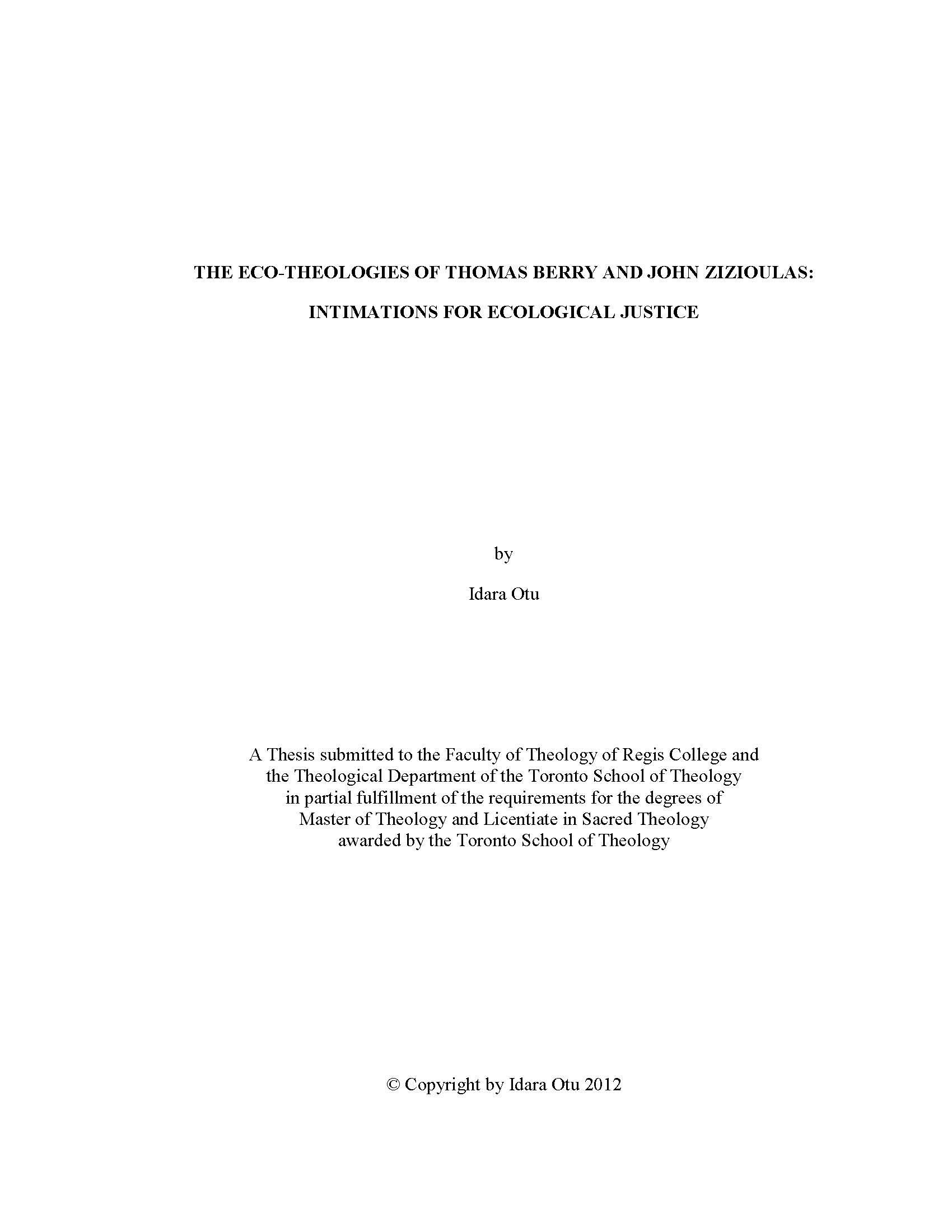By Idara Otu
Master of Theology/Licentiate in Sacred Theology
Regis College, Toronto School of Theology, Toronto
MA Thesis, 2012
Abstract
The contemporary ecological crisis is the most inexhaustive anthropogenic catastrophe in human civilization yet, with its adverse waves sweeping across the globe, even to generations unborn. The earth crisis has prompted theological discourses from diverse faith traditions on the religious responsibility to preserve ecological integrity. This exigency to protect and care for creation is increasingly inevitable and religion has an indispensable responsibility in unison with societal institutions to foster a collaborative dialogue towards an authentic resolution. Within Christendom, there is a dire need for a continuous and mutual engagement of ecotheological paradigms, at the level of both orthodoxy and orthopraxis, for the enhancement of an ongoing renewal of Christian ecological responsibility.
Accordingly, given the Christian responsibility of protecting and caring for creation as a common patrimony of all humanity, this thesis will compare and contrast the functional cosmology of Thomas Berry with the creation theology of John Zizioulas in order to draw seminal theological insights suitable for the ecological justice mission of the Church. This academic research will argue that amidst the vicissitudes of humaninduced ecological devastations, the ecotheological motifs of Berry and Zizioulas are significant in the ongoing search for renewing the theological dynamics of the Church’s mission for ecological justice.
